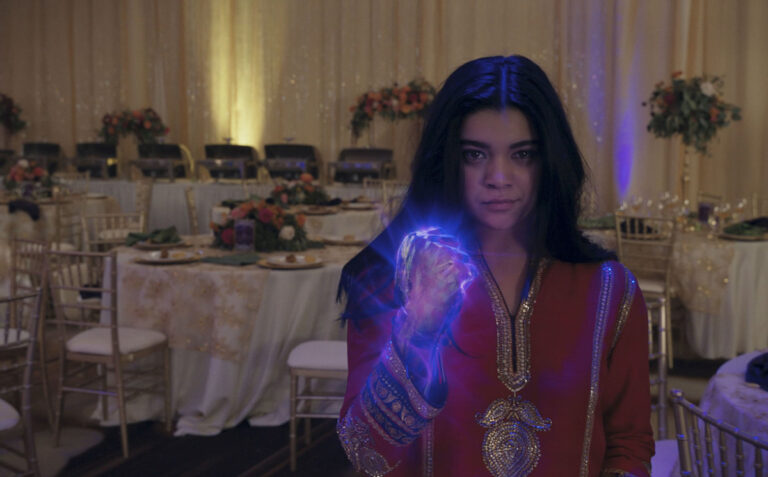‘Christians against Ms. Marvel’ troll group attacks the show for its ‘gay Muslim’ lead

As Marvel Studios announced its latest series Ms. Marvel, it appears some may have taken issue with the story’s Muslim lead. The show—which is already available on Disney+—follows the tale of Kamala Khan, a Muslim American teenager living in Jersey City. Obsessed with all things superhero as well as being a diehard fan of Captain Marvel in particular, Khan soon finds herself with her own superpowers much like her idols.
However, not everyone seems to have been won over by the comic-loving teen. An alleged hate group named ‘Christians against Ms. Marvel’ has recently surfaced on Facebook, amassing a following of 17,000 and rising.
“Ms. Marvel might be the biggest slap in the face for conservative Christians to date,” the description of the group’s page read. “Disney has decided that the face of this franchise should not be Carol Danvers but should instead be a gay Muslim. No more straight Christian characters from Marvel. Those days are over. Please join us as we let Disney know that we will not BE CANCELLED!!” it continued.
Thanos was right, half of humanity needs to go pic.twitter.com/bl8jiwd9fs
— Julian 🇵🇸 (@TesolinJulian) June 8, 2022
The reporting of the hate group caused massive backlash across the internet with many rightfully criticising the homophobic and Islamophobic rhetoric it was spouting. Many took to Twitter to cite that Khan’s character wasn’t in fact gay as the group had claimed and is not a new creation aimed to replace Carol Danvers. Others pointed out the irony of their assumptions about Carol Danvers’ sexuality and religious background.
“[I don’t know] what’s funnier, that they’re mad at Kamala or that they thought Carol Danvers was a straight Christian,” one user wrote. Danvers’ character has historically been known to have been in same-sex relationships in the comics. Another called into question the validity of the group saying, “Wait… are we sure this is serious? That group was started by someone using the name ‘Wade Wilson’. I think this is trolling.” Wade Wilson is the ‘every day’ name of fictional superhero Deadpool.
While publications like IGN have reported ‘Christians against Ms. Marvel’ as a legitimate hate group, it might not actually be—in fact, it’s perhaps just a huge troll. Thanks to a deep dive into the group by Distractify, who actually entered and accessed the private page, there is swathes of evidence to suggest its intention was purely to troll. The publication noted that such coverage of the community’s existence was celebrated in the page: “Alright, we made it to Twitter. Most of the tweets think we are actually against this movie. I mean, of course we’re against it!”
For the publication, whatever the members may or may not believe, such comments indicated that a large portion of the group are simply on a mission to troll the internet led by their troll creator, ‘Wade Wilson’.




